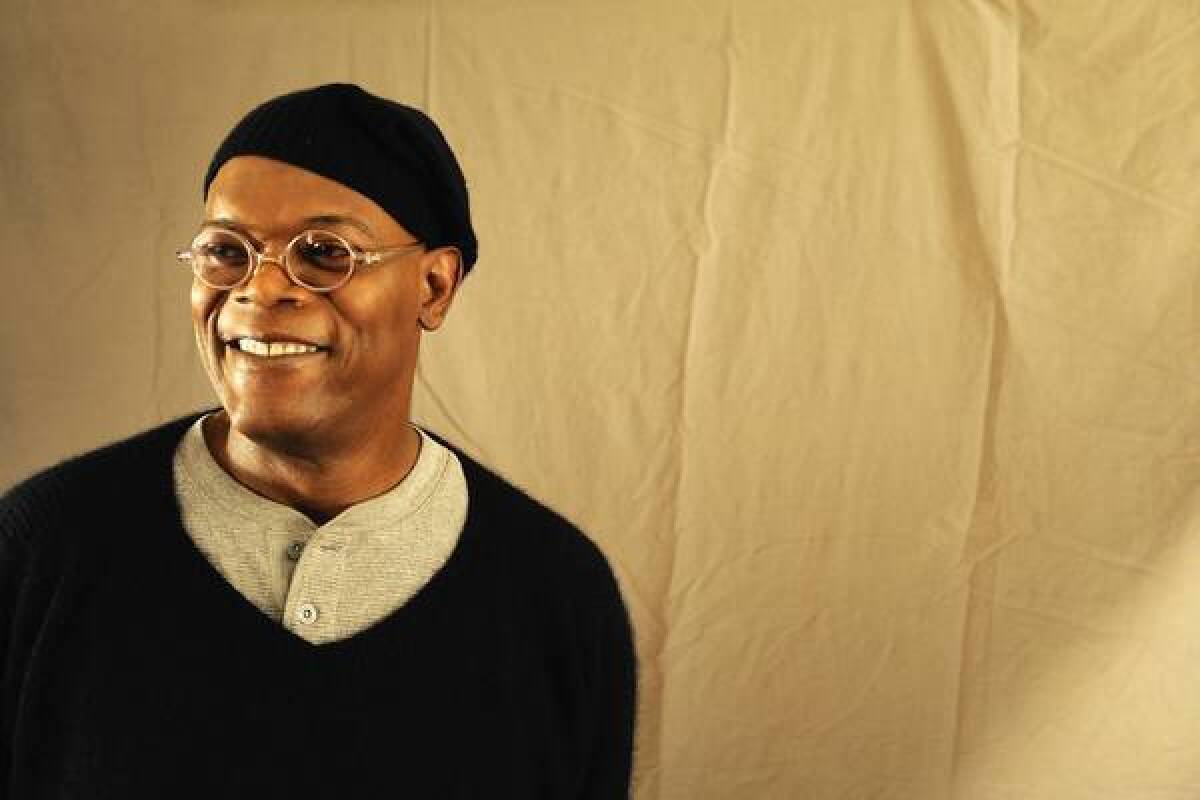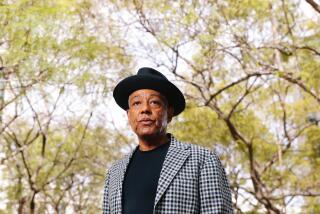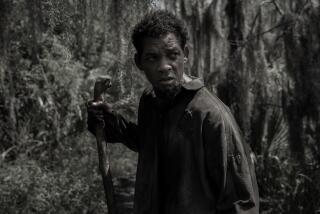Samuel L. Jackson on slavery, entertainment, guns in ‘Django’

Samuel L. Jackson has incarnated some colorful, fast-talking characters in Quentin Tarantino movies over the years, such as his scripture-quoting hit man Jules Winnfield in “Pulp Fiction” and scheming gun runner Ordell Robbie in “Jackie Brown.”
Jackson takes on perhaps his most morally slippery Tarantino role yet in the violent dark comedy “Django Unchained.” As house slave Stephen, Jackson plays a conniving opportunist to Leonardo DiCaprio’s unctuously evil plantation owner Calvin Candie (overseer of “Candieland”) in the snappily written revenge fantasy. Under the pretext of looking out for his owner, Stephen self-servingly turns every situation and challenge to his advantage — while wearing some serious geezer makeup to boot.
The Envelope chatted with Jackson about reinventing the slave character, Hollywood’s relationship to black culture and even the roots of school shootings.
BUZZMETER: ‘Django Unchained’s’ Oscar chances
You’re playing a slave we haven’t much seen on screen — someone who’s not a victim and is, in fact, kind of the bad guy. Was that hard for you?
I don’t think there’s any question Stephen is one of the most despised Negroes in cinematic history. He’s unapologetically menacing. He’s the power behind the throne. He’s the Dick Cheney of Candieland. But I also understand his position. He doesn’t want to upset the apple cart. On the plantation, he can function like a free man. But he goes 75 miles away and he’s just an ordinary slave.
Did you think to give him some appealing edges? Even your bad-guy roles often have a certain wisecrack-y relatability.
I’m not one of those actors who feels like audiences have to like him. Stephen’s funny — he does funny things, at least. There’s an insulting jocularity to him. But he’s still insulting.
Some of the power of the character just comes from the way he looks — a paunchy, hobbled old man with an old face. Not your usual Samuel Jackson character.
[Laughs.] No, it’s not. At least, I hope it’s not. Quentin and I wanted to give Stephen a certain look — we wanted him to appear like the most ancient slave in the place. Which he is. But we also wanted him to seem strong and smart. He looks feeble, but there’s also something else there.
Perhaps because it takes on such a serious subject as slavery, which we usually see only in dramas, and contextualizes it in a fantasy and a comedy, the film is likely to face some criticism. What would you say to someone who says the movie disrespects slavery and its horrors?
Quentin has an affinity for writing horrible things and then making you laugh. So there’s the scene with Jonah [Hill] where the Klan is gathering and they’re about to go do some terrible stuff, and then they start arguing about their hoods because they can’t see out of them. I think it’s dangerous if this is where you get your information from. He’s making entertainment. Hopefully, it makes you go ask questions and you Google it. If you want to learn something from a movie, go watch a documentary.
OSCAR WATCH: ‘Django Unchained’
Hollywood in general seems to be a little more willing to make stories about black history, but those films are still few and far between. Does that bother you?
They’re making entertainment. I can’t blame them for that. And it comes down to what people want to watch when they’re eating popcorn. I just saw this movie “Sex Traffic.” It’s a documentary about the sex-slave trade across Europe. Awesome movie. But no one’s going to see it. Look at “The Hurt Locker.” Oscar winner. Did anyone go see it? No. You can’t blame Hollywood for wanting to make entertainment.
This movie has a fair amount of gun violence and can be a bit flippant about it. Does that give you pause in the wake of what happened in Connecticut?
I don’t think movies or video games have anything to do with it. I don’t think [stopping gun violence] is about more gun control. I grew up in the South with guns everywhere, and we never shot anyone. This [shooting] is about people who aren’t taught the value of life.”
MORE COVERAGE
PHOTOS: Memorable red carpet moments
VIDEO: Go behind the scenes with the awards contenders
More to Read
From the Oscars to the Emmys.
Get the Envelope newsletter for exclusive awards season coverage, behind-the-scenes stories from the Envelope podcast and columnist Glenn Whipp’s must-read analysis.
You may occasionally receive promotional content from the Los Angeles Times.









